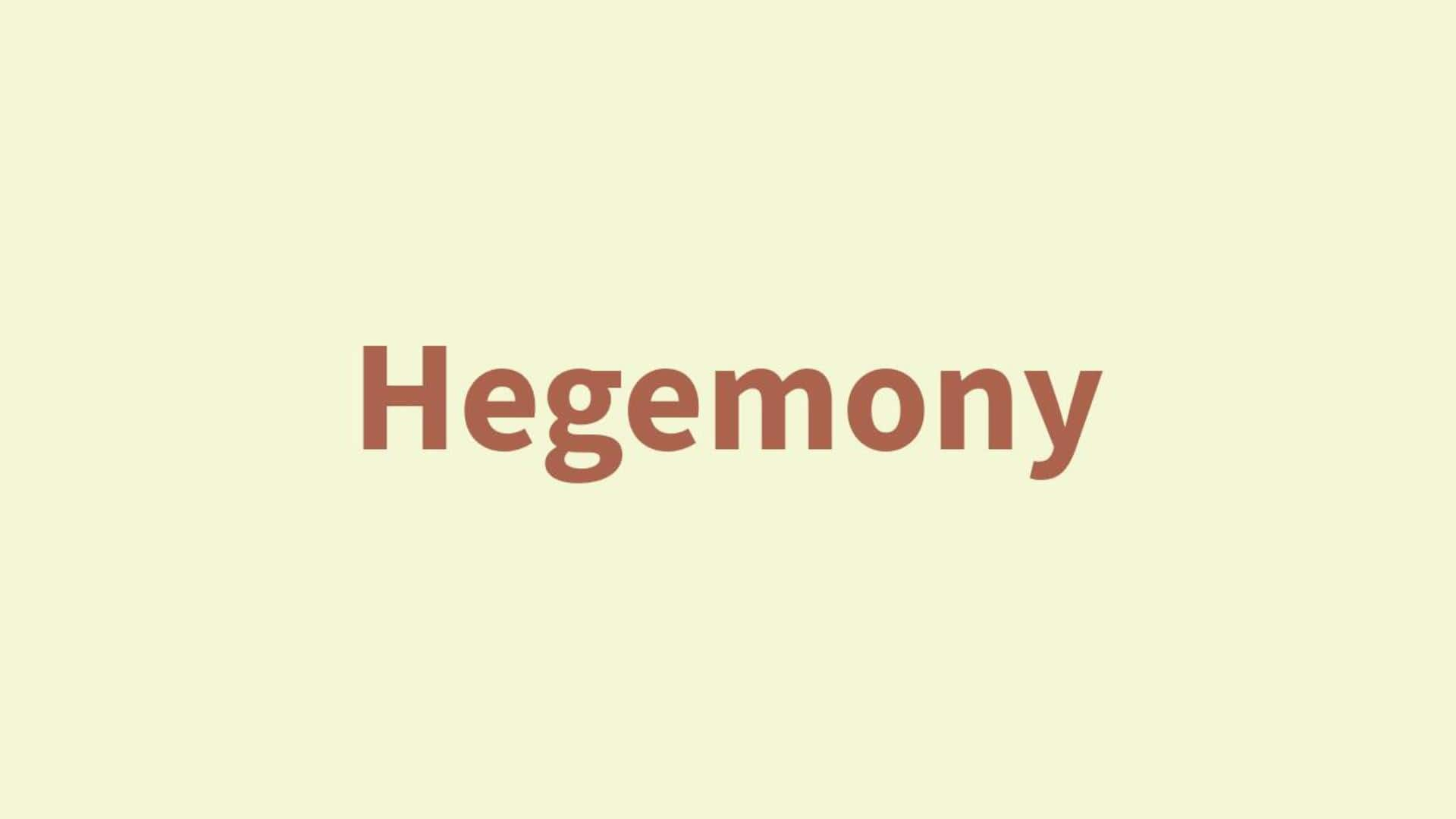
Word of the Day: Hegemony
What's the story
"Hegemony," a noun, refers to dominance or control by one state, group, or individual over others. It is often used in political, cultural, or social contexts to describe leadership or influence that dictates the direction others follow. For example, a powerful country's economic policies might assert "hegemony" over weaker nations.
Origin
The origin and meaning of 'hegemony'
The word "hegemony" comes from the Greek hegemonia, meaning leadership or authority. Derived from hegemon (leader), it entered English in the 16th century through French and Latin. Its roots lie in ancient political structures where city-states like Athens exerted influence over others in alliances and conflicts
Synonyms
Synonyms for 'hegemony'
Synonyms for "hegemony" include dominance, leadership, supremacy, control, authority, and power. While these terms are similar, "hegemony" specifically refers to a subtle and indirect form of leadership or influence. It implies shaping ideologies, policies, or behaviors within a larger context, often exerted indirectly or subtly, making it distinct from overt forms of dominance or control.
Usage
Sentence usage
Here are examples of how "hegemony" can be used in a sentence: "The 'hegemony' of the tech industry reshaped global communication and commerce." "Cultural 'hegemony' often dictates societal norms, leaving little room for diverse traditions." "The debate highlighted concerns about the country's growing economic 'hegemony' over its neighbors."
Clarity
Why use 'hegemony'
Using "hegemony" adds depth to conversations about power, especially in politics, culture, or academic settings. It highlights a more indirect type of control, making it useful for discussing influences that are not directly obvious. Whether in essays, articles, or speeches, "hegemony" helps make your language more precise and clear.